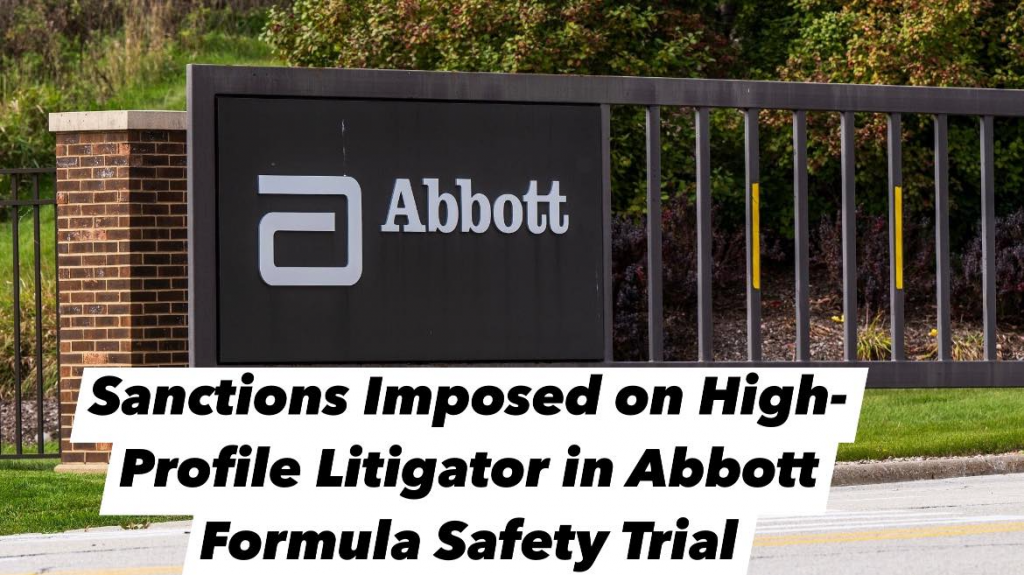In a notable development in high-stakes litigation, a Missouri judge has restricted Kirkland & Ellis partner James Hurst from arguing for Abbott Laboratories in an ongoing trial over infant formula safety.
Judge Michael Noble of the St. Louis City Circuit Court sanctioned Hurst on Oct. 24 for “bad faith” conduct, stating that Hurst “repeatedly toed the line of appropriate conduct” by attempting to introduce evidence and testimony to sway the jury unfairly.
The lawsuit, brought by the family of a premature infant who developed necrotizing enterocolitis (NEC), alleges that Abbott and Mead Johnson’s formulas are linked to the condition. Abbott faces hundreds of similar claims across the country, with recent litigation resulting in a $500 million verdict in another St. Louis case, currently on appeal.
Judge Noble’s ruling detailed Hurst’s actions, including his alleged efforts to elicit prejudicial testimony against court orders. While he can remain in the courtroom, Hurst is barred from presenting arguments in what the court described as an effort to “elicit a mistrial.” Kirkland spokesperson Kate Slaasted defended Hurst’s record, highlighting his three-decade career and professional reputation. Abbott’s spokesperson, Scott Stoffel, also emphasized Hurst’s ethical approach and effectiveness in complex litigation.
The defense team argued the sanction was overly severe, labeling Hurst’s actions as “zealous advocacy,” not bad faith, and requested that he deliver closing arguments. However, Judge Noble upheld the sanction, calling it “measured and appropriate.” Notably, Abbott’s legal strategy had included attempts to submit recent federal health reports suggesting no conclusive link between infant formula and NEC—a move Noble blocked as an “unfair and prejudicial surprise” after discovery had closed.
Hurst, a nationally recognized trial lawyer and fellow of the American College of Trial Lawyers, briefly retired from Kirkland last year before returning with a commitment to continuing his advocacy. The legal, medical, and regulatory communities will closely watch this high-profile trial as they await further developments.
- Follow or share

